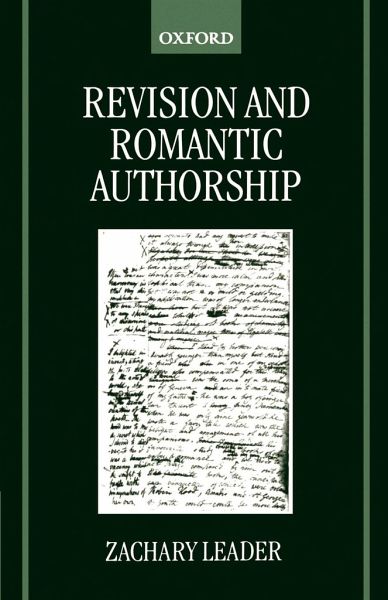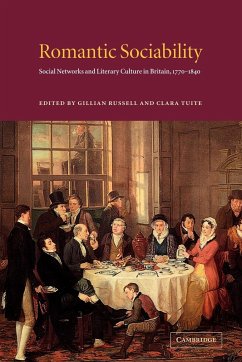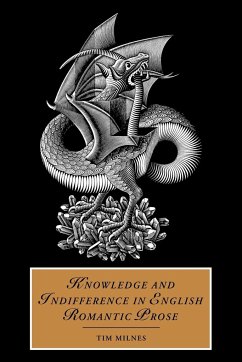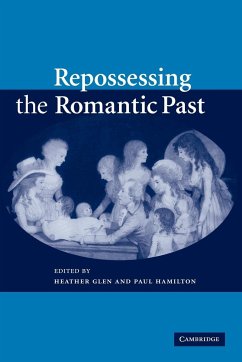
Revision and Romantic Authorship
Versandkostenfrei!
Versandfertig in 1-2 Wochen
58,99 €
inkl. MwSt.

PAYBACK Punkte
29 °P sammeln!
In the first part of the book, Leader shows how revisionary and editorial habits (those not only of the writers themselves but of their modern editors) reflect conflicting attitudes to the self or personal identity; in the second, these attitudes are related to the role of 'collaborators' in the revising process, including family, friends, publishers, critics, and readers.
The Romantic author is often portrayed as spontaneous, extemporizing, otherworldly, and alone. Zachary Leader argues that this influential fiction is much in need of revision. Romantic attitudes to authorship profess a preference for what comes naturally, with a concomitant devaluing of secondary processes, including second thoughts, yet many Romantic writers such as Wordsworth, Byron, Keats, Coleridge, Clare, and Mary Shelley revised their works. Revision and Romantic Authorship looks at the revisionary practices of these writers, showing that second thoughts (including those of collaborators) in fact play a crucial role in "Romantic" composition.












